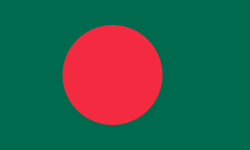| People's Republic of Bangladesh Adviser of Religious Affairs | |
|---|---|
| বাংলাদেশের ধর্ম বিষয়ক উপদেষ্টা | |
 | |
 | |
| Style |
|
| Type | Cabinet minister |
| Status | Adviser |
| Member of | |
| Reports to | |
| Seat | Bangladesh Secretariat |
| Nominator | Chief Adviser of Bangladesh |
| Appointer | President of Bangladesh on the advice of the chief adviser |
| Term length | Interim or the chief adviser's pleasure |
| Inaugural holder | Mahbubur Rahman |
| Formation | 7 January 1984 |
| Salary | ৳245000 (US$2,000) per month (incl. allowances) |
| Website | mora.gov.bd |
The minister of religious affairs is the minister in charge of the Ministry of Religious Affairs of the government of Bangladesh. He is also the minister of all departments and agencies under the Ministry of Religious Affairs. Prior to 1980, religion-related matters were looked after first under the Ministry of Education and later under the Ministry of Sports, Culture and Religion. It started its journey on January 25, 1980 through separate ministries and ministers. [1] During the time of caretaker government The minister of religion affairs is known as Adviser of religion affairs.





